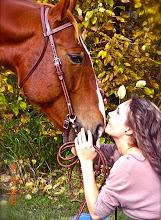Wikipedia is utilized by millions of people every week. It has grown to be one of the world's largest networks for basic and in-depth information on thousands of topics. Up until recently, I had no idea that the term "wiki" is a noun that refers to information that can be written and edited by ANY person who so chooses to do so. I think is the vital characteristic of wikipedia that has made it so popular throughout North America, if not throughout the entire world. The more I browsed around Wikipedia and learned how to edit and all of the processes and codes that are involved in creating an article on a topic, the more I thought about why other "wiki" sites are not as popular as Wikipedia. What about this website makes it so universal?
To start off, the homepage of Wikipedia allows visitors to choose from one of 40 of the world's most spoken languages and view all the articles in their chosen language. This aspect allows Wikipedia to network in countries all over the world, a characteristic that I'm sure many wikis out there do not possess. Also, Wikipedia is not a specified site that focuses on one topic such as, for example, the medical field. It covers thousands of topics and is structured in such a way that makes the information user friendly. Most Wikipedia articles consistently have a: Background section, a section of the general characteristics of the topic, a History section, and then others such as Diagnosis, Causes, and Management sections, depending on the type of search done. Wikipedia also almost always has a literature cited or Reference list at the end of the article. I think the feature I like most about this site is that the information presented can be removed or edited if points made are untrue or biased. However, and I easily made a user account with Wikipedia and was editing my article within minutes, I was slightly alarmed at how easy this entire process was going to be. I held so much power in my hands...I could make up anything I wanted to and people would believe it! The world was my oyster. Maybe not, but it really helped me understand that the information a site such as this provides, while easy to read and gain a basic understanding, should NEVER be taken too literally. A more in depth analysis of any topic one is required to get factual information on should be taken from a journal article or the like.
While editing my article for Wikipedia, I found it somewhat difficult to provide an in depth reflection on my topic. Since I chose to do a viral disease, there is not much information that can be provided without going into personal experience with the disease. Also, since my chosen article provides symptoms, diagnosis, and treatments, and is quick straight forward about what Blain Distemper is, I found it difficult to include examples with explanation and analysis as the outline for this article suggests.
Wikipedia has opened up a world of general, easily accessible information that does not require the individual to trudge to their local library and haul out a dusty, gigantic encyclopedia. Wikipedia also provides more up-to-date information than can ever be present in a physical encyclopedia because new versions would constantly have to be printed to keep up with our constantly changing world. But, as with anything, let the consumer of knowledge beware, there is a reason Universities don't allow students to cite Wikipedia.
http://www.brisbanegrammar.com/blogs/library/wp-content/uploads/2010/07/Wikipedia-facts-you-can-trust.jpg
( I'm not entirely sure who the man in my picture is, but I'm assuming this is a joke...hopefully...)
My external link will be to my own article I have edited on Wikipedia which can be found here.
I hope you are now more knowledgable on Animal Distemper :)
My internal link is to one of my classmates Jami Frederick, whose blog can be found here. I chose to link to her blog because she edited an article on Backleg, a bacterial infection in sheep and cattle, and therefore is something similar to my topic. We both sort of like animals :)


No comments:
Post a Comment